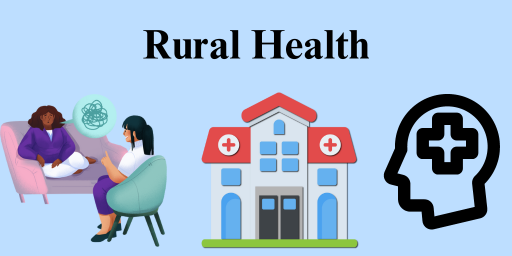What is Rural Health Centers and Nursing Health Care. Rural Health Centers (RHCs) are primary healthcare facilities that serve rural communities, often providing essential services and acting as a primary source of care for underserved populations.
Nurses in these centers play a crucial role, taking on multiple responsibilities, developing deep connections with patients, and addressing unique challenges. RHCs, along with Basic Health Units (BHUs), are integral to the healthcare system in rural areas, focusing on preventive medicine and basic health services.
The Rural Health Centers and Nursing Health Rural Care
Understanding rural health involves recognizing the unique characteristics and needs of rural populations. Rural areas are diverse, encompassing long-standing agricultural communities as well as more recently evolved settings with varied economic bases. Despite these differences, rural health faces common challenges and opportunities shaped by demographic and economic changes.
Purposes of Rural Health
Rural health care aims to address the specific needs of rural populations, which have evolved significantly over time. Historically centered on agriculture, rural areas are now characterized by greater economic diversification. As of 1999, consumer services, manufacturing, and public sector jobs made up significant portions of rural earnings, with agriculture contributing less than before. This diversification, alongside rapid technological advances, has blurred the distinctions between urban and rural life, affecting the health needs and resources of rural communities.
Challenges and Complications of Rural Health Care
Rural health care faces several challenges:
- Limited Access: Rural residents often have reduced access to health care services due to geographic isolation and fewer healthcare facilities.
- Economic Disparities: High poverty rates and a lack of insurance contribute to health disparities.
- Transportation Issues: Limited transportation options further hinder access to care.
- Health Risks: Rural populations experience higher rates of chronic illnesses, accidental deaths, and mental health issues, including higher suicide rates among rural men.
- Gender-Specific Issues: Rural women face barriers to health education, cancer screenings, and specialized treatments compared to their urban counterparts.
- Homelessness: Rural areas have unique issues with homelessness, especially among Native Americans and migrant workers.
- Occupational Hazards: Many rural residents work in hazardous environments, leading to increased risks of injury and health problems.
- Social Issues: Problems such as domestic violence, substance abuse, and unintentional injuries are more prevalent in rural settings.
Poverty and Rural Health
Poverty in rural areas has led to significant social and health challenges. The decline in population, business closures, and increasing poverty contribute to a sense of disempowerment among rural residents. This “quiet crisis of confidence” reflects a broader issue of diminishing economic and social stability in many rural communities. Despite these challenges, rural areas also have notable strengths and successes, reflecting the resilience and commitment of their inhabitants.
How to Achieve Maximum Health Outcomes
Achieving optimal health outcomes in rural areas requires addressing several key factors:
- Evidence-Based Practice: Implementing evidence-based care involves utilizing the latest research and expert consensus to inform nursing and healthcare practices.
- Research Gaps: Rural nursing research often suffers from issues such as small sample sizes, lack of random sampling, and inadequate operationalization of rurality. Addressing these gaps is crucial for developing effective interventions.
- Data Utilization: Improved data collection and analysis are needed to better understand rural health issues and develop targeted solutions.
Rural Health Care Centers and Nursing Concerns
Rural health care centers are crucial in addressing the specific needs of rural populations. There are positive developments in rural nursing science:
- New Journals: The Online Journal of Rural Nursing and Health Care is a valuable resource for disseminating research and information.
- Research Programs: Initiatives like those at Binghamton University and Montana State University are advancing knowledge in rural health, focusing on cardiovascular disease, elderly care, and technology-based support.
- Doctoral Programs: New doctoral programs, such as the one at Binghamton University, are preparing more researchers to address rural health issues.
- Telehealth: Advances in telecommunications have improved access to education and care for rural nurses, enabling remote consultations and enhancing research capabilities.
Nursing Research and Journals About Rural Health Centers
Several notable developments in rural health research include:
- Research Initiatives: Studies focusing on rural women, elderly populations, and chronic conditions are addressing critical health issues. Examples include research on cardiovascular disease in rural women and community health needs for elderly rural residents.
- Cross-State Studies: Collaborative studies across states are exploring universal and population-specific characteristics in rural settings, such as the use of complementary therapies by older adults.
- Research Centers: The Center for Research on Chronic Health Conditions in Rural Dwellers at Montana State University is fostering connections between researchers and enhancing rural health research.
Conclusion
Rural health care faces unique challenges related to access, economic disparities, and specific health risks. However, advancements in research, education, and technology are improving the understanding and delivery of health care in these areas. By addressing gaps in research and leveraging new tools and programs, the quality of rural health care continues to improve, enhancing outcomes for rural populations and supporting the development of effective, evidence-based nursing practices.
Read More:
https://nurseseducator.com/didactic-and-dialectic-teaching-rationale-for-team-based-learning/
https://nurseseducator.com/high-fidelity-simulation-use-in-nursing-education/
First NCLEX Exam Center In Pakistan From Lahore (Mall of Lahore) to the Global Nursing
Categories of Journals: W, X, Y and Z Category Journal In Nursing Education
AI in Healthcare Content Creation: A Double-Edged Sword and Scary
Social Links:
https://www.facebook.com/nurseseducator/
https://www.instagram.com/nurseseducator/

I am really impressed along with your writing skills and also with the structure in your weblog.
Is this a paid subject or did you customize it your self?
Anyway stay up the nice quality writing, it is uncommon to
peer a nice weblog like this one these days. Madgicx!